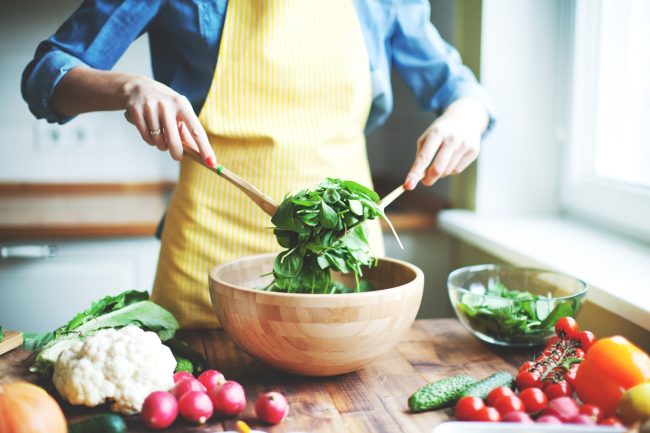Collagen may not come up at the dinner table, but it is a mighty structural protein that does a lot of work behind the scenes. Collagen comprises much of your tendons, ligaments, cartilage, bone, blood vessels and skin. Some even believe collagen hails from the fountain of youth, because it offers visible skin elasticity and firmness (both of which decline with age). Since collagen has such a large presence in the body, you would think consuming it through foods could lead to improvements in collagen formation. There may be some truth to this. But, first, consider the bare-bone facts.
The Science Behind Collagen
Take a stroll down biochemistry lane. Amino acids are the building blocks of protein, which your body needs in order to perform endless functions. These amino acids stretch from hearty histidine to powerful phenylalanine. Collagen is a “complete” protein, because it contains all nine essential amino acids necessary to build protein. However, collagen food sources are always animal-based. But wait, there’s more…
Now, onto physiology class. The food on your plate must then be broken down into a digestible, absorbable form in order to be properly used. Therefore, the manufacture of collagen can be produced from various protein sources in your diet. This is where plant protein comes in.
Plant Protein Power
Remarkably, an abundance of protein is found in the plant kingdom. That being said, you are hard pressed to find fully “complete” proteins from only one source of fruits, vegetables, grains, legumes, nuts or seeds. That’s why a nutritionally optimal plant-based diet combines multiple sources of protein to form a “complete” protein.
For example, grains are often limiting in the amino acid lysine and beans are often limiting in methionine, so you might combine them to get multiple amino acids. Thankfully, any combination of proteins throughout a given day supports the creation of strands of protein. So no need to worry about complete, high-quality proteins with every bite – phew!
Putting it into Play
In other good news, a diet based wholly or partially on plants delivers on protein as well as carbohydrates, fats, vitamins, minerals and health compounds. Here’s a look at a sample 2000-calorie vegetarian meal plan, which provides adequate nutrition to promote collagen building:
Breakfast:
- 4 ounces scrambled tofu
- ½ cup diced potatoes
- ½ cup diced bell peppers
- Small orange
- Breakfast soy sausage patty
- One slice whole grain toast
- 1 teaspoon margarine
- Tea or coffee (without sugar)
Lunch:
- 1 cup vegetarian chili
- 6 whole grain crackers
- 2 cups tossed salad with mixed veggies
- 1 tablespoon vinaigrette salad dressing
- 8 ounces orange juice
Dinner:
- 1 cup sautéed mixed vegetables
- 2/3 cup cooked quinoa
- 2 teaspoons olive oil
- 4 ounces stir-fried seitan (“wheat meat”)
- 8 oz. fortified soy milk
Snack Ideas (pick 2):
- 17 grapes
- 1 ounce nuts
- Raw carrots with 2 tablespoons hummus
- 2/3 cup soy low-fat yogurt
- 1 stalk celery with 1 tablespoon peanut butter
A diet that includes variety and adequate amounts of protein (from only plants or from a combination of plant and animal products) supports the stimulation of collagen growth – and may help convince others you’re celebrating your 25th birthday (shh…no one has to know the truth).

